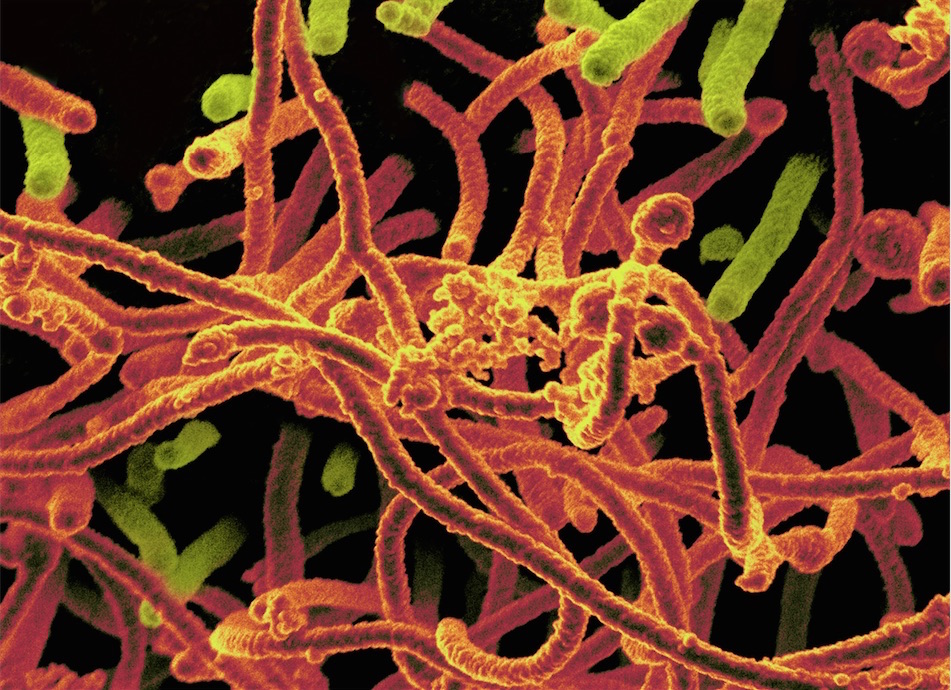People with Ebola May Not Show Symptoms

Get the world’s most fascinating discoveries delivered straight to your inbox.
You are now subscribed
Your newsletter sign-up was successful
Want to add more newsletters?
Join the club
Get full access to premium articles, exclusive features and a growing list of member rewards.
People who have Ebola may not always have symptoms, a new survey confirms.
Researchers who conducted the survey in a known Ebola "hotspot" in West Africa found 14 people who tested positive for Ebola antibodies, but who reported that they never had any significant symptoms. Two of these people said they had suffered a fever during the Ebola outbreak, which stretched from late 2014 until the spring of 2016. The other 12 said they had no symptoms at all.
The survey was "really one of the first to study the rate of minimally asymptomatic cases of Ebola in a 'hot zone,'" said Dr. Michele Barry, a professor of medicine at the Stanford University School of Medicine and a co-author of the new paper.
Her team was surprised that they found so many people who were infected with Ebola virus but had few or no symptoms, Barry told Live Science.
The researchers conducted their survey in the village of Sukudu, in Sierra Leone, which has about 900 people. The survey was conducted from October 2015 to January 2016, which was approximately one year after the Ebola outbreak struck the village. During the outbreak, 34 cases of Ebola were reported in Sukudu, and six of those people who were infected survived. [The 9 Deadliest Viruses on Earth]
The researchers tested the blood of 187 people who lived in Sukudu, and had not reported having Ebola during the outbreak, for antibodies to the Ebola virus. All of these people had been placed under quarantine during the outbreak, either because they lived with someone who did have Ebola, or because they had shared a public latrine with an infected person. The researchers also tested 30 people from the surrounding region who did have Ebola, as a "positive control" group, meaning a group that should definitely all have antibodies to Ebola.
The finding that 14 people had antibodies to the Ebola virus, despite reporting no Ebola-like symptoms, is further evidence that Ebola has "a spectrum of clinical manifestations, including minimally symptomatic infection," the researchers wrote in their paper, published Tuesday (Nov. 15) in the journal PLOS Neglected Tropical Diseases.
Get the world’s most fascinating discoveries delivered straight to your inbox.
Moreover, the finding shows "that a significant portion of Ebola transmission events may have gone undetected during the outbreak." This could change how survivorship of Ebola is defined, and may have implications for future research on vaccine studies or the transmission of the disease, the researchers said.
The new study is not the first to find people who likely had Ebola but did not have any symptoms, the researchers noted. A 2010 studyof about 4,300 people living in Gabon, a country in Central Africa, found that 15.3 percent had antibodies against Ebola. Most of these, the authors believed, had suffered only a mild or asymptomatic infection. [Where Did Ebola Come From?]
The new study has some limitations: Given the stigma of admitting to having Ebola symptoms and the fear of being admitted to an Ebola Treatment Unit, some people who had symptoms may have been eager to downplay their symptoms or deny feeling sick. In addition, the researchers said that it is difficult to verify people's symptoms through interviews, and that they had to rely on the participants' memories of how they felt up to a year prior.
The researchers stressed that their findings were from one village, and may not apply to the entire region affected by the Ebola epidemic. However, more research on asymptomatic cases of Ebola could help improve understanding of the disease. "As a result, we may learn more about how efforts at containment can be improved," the researchers wrote in their study.
Originally published on Live Science.
 Live Science Plus
Live Science Plus











